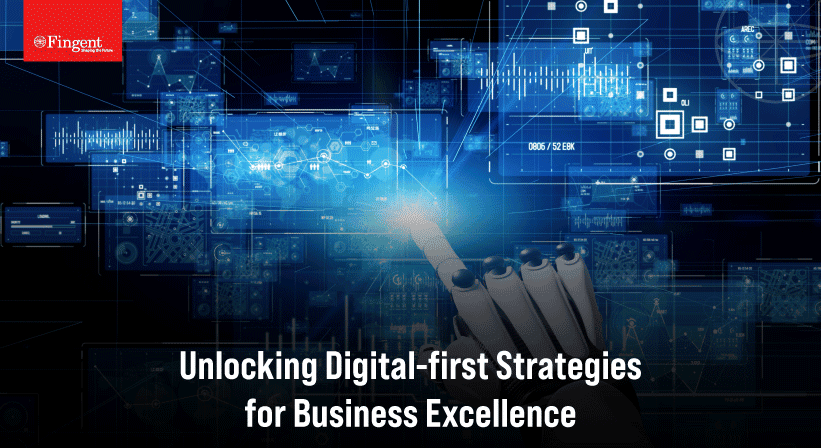Is Your Digital Transformation Initiative Really Working?
To reiterate John F. Kennedy, “Change is the law of life, and those who look only to the past or present are certain to miss the future.”
The digital world revolves around evolution and change. It is constantly transforming from one stage to the next. Do you feel lost in this metamorphosis of digital transformation? Does the fervent adoption of advanced technology into business processes catch you off-guard and unprepared?
We understand and want to help you navigate and thrive in this new era. Stay with us and continue reading.
What Is Digital Transformation?
Digital transformation is the process of utilizing digital technology to develop or modify current corporate practices, culture, and consumer experiences to meet shifting business and market requirements. The perks include better company agility, improved efficiency, and, eventually, the creation of new value for shareholders, consumers, and employees.
According to Gartner, 87% of senior business leaders believe that digitalization should be a top priority for businesses, and 91% of organizations across the globe are currently involved in some sort of digital operation. To improve its client experience, a business might implement AI or cloud computing, for instance. Or it might change its supply chain to ensure machine learning is used more effectively. There are innumerable ways to digitalize your business and reap its many benefits.
Why Is Digital Transformation Important?
The pandemic changed the relevance of digital transformation almost overnight. From a way of enhancing customer care, it quickly became embedded into the core operational and innovative aspects of an organization. In this day and age, an organization’s sustainability may be in jeopardy if it fails to implement digital transformation. This is vital to satisfy the demands of the business landscape. As per Statista, digital transformation has been the leading priority for information technology (IT) initiatives for global companies since 2020.
Businesses are using digital solutions to help them customize their interactions, communications, and goods to meet the unique needs of their clients. For instance, a report by Gartner estimates that by the end of 2020, chatbots will power 85% of customer support. Here are some important reasons why businesses are adopting digital tech:
- Improvement Of Customer Experience – Customer experience is at the core of digital. In order to enhance the customer experience, 92% of business leaders are developing sophisticated digital transformation strategies.
- Additional Data-Based Insights – The tracking and analysis of metrics are made possible by going digital. Making efficient decisions and increasing ROI can both be accomplished by using data-driven insights to better understand customers and re-evaluate business strategies.
- Competitive Edge – By developing new goods and services, entering new markets, and enhancing customer comprehension and service, digital transformation enables organizations to achieve a competitive edge.
- Cost-Cutting – By automating procedures, reducing waste, and improving supply chain management, digital transformation lowers business expenses. A McKinsey study found that businesses that completely adopt Digital Transformation can cut costs by up to 50%.
Stages Of Digital Transformation
Digitization, digitalization, and digital transformation are the three major stages of the Digital Transformation process. A successful implementation requires businesses to move from one stage to the next seamlessly.
- Digitization – The transformation of manual (analog) information into digital format, enabling easy manipulation, storage, and transmission, is called digitization. It is the process of moving to a digital business. For instance, converting paper forms into electronic documents.
- Digitalization – Using digital technologies and digitalized data to enable or improve business processes is known as digitalization. For instance, using a marketing website, software, or mobile app to stay in touch with customers and employees is an example of how digitalization may modify an organization’s operating structure and provide new revenue and value-producing opportunities.
- Digital Transformation – The use of new and developing technologies to encourage sustainable innovation and creative expansion while making fundamental changes in an array of business-related areas. It enhances all aspects of the organization, including how employees engage with clients and how operations are carried out. For example, it collects insights from previous customer data, behavioral patterns, and purchase history to customize products and services offered. That is one of its many benefits.
How To Discover Where Your Business Stands
Legacy challenges are frequently overcome as part of digital transformation, but how effective is it? Measuring the progress of any effort with well-defined KPIs and metrics is the only way to know how far you have come.
Tips to measure the progress of digital transformation:
- Feedback from your employees and co-workers
- Track fluctuations in customer feedback
- Analyze the data across the different initiatives that you have implemented
Some additional metrics to track include:
- The degree of digital adoption
- Customer satisfaction rankings
Receiving feedback and measuring progress this way can help you locate where your business stands in its Digital Transformation process and improve your strategies to drive better results.
The Future Of Businesses In Digital Transformation
From using cutting-edge technologies to making strategic decisions, Digital Transformation is influencing businesses. It alters how firms operate, streamlining operations, boosting efficiency, and establishing a cultural shift. A prediction by International Data Corporation states that 75% of corporate executives will use digital platforms and ecosystem capabilities by 2025 to increase their platforms’ agility, efficiency, and sustainability.
Here are some future trends in Digital Transformation:
1. Low-Code, No-Code
Low-code, no-code is a method of software development that calls for either very little (low-code) or no (no-code) coding at all. As per studies, low-code and no-code platforms will be used for more than 65% of software development by 2024. The market will be valued at $13.8 billion in that year!
2. Cloud Migration
Cloud migration is the act of moving data and applications from one location, typically a company’s on-premises servers, to a public cloud provider’s servers. The four benefits of cloud migration are efficiency, accessibility, scalability, and security.
3. Artificial Intelligence And Machine Learning
AI uses machine learning for data analysis and forecasting to guide efficient digital organizational strategies, personalize interactions, optimize workflows, and offer consistently dependable services 24/7.
Strategizing An Effective Digital Transformation Journey
While undertaking such a big change, it is important to have a foolproof strategy to rely on. Following are a few aspects that you can consider during your digital transformation process:
- Transformation Of Business Strategies – Technology becomes pivotal to business strategy in the aftermath of digital transformation. Operating expenses and inefficiency can be decreased with this strategy.
- Realigning Business Operations – For agility and experimentation, it is essential to transform corporate procedures and adopt new working methods.
- Adopting Novel Methods Of Agility And Experimentation – Modern engineering capabilities must be combined with new working methods as customer expectations and the rate of change increase. Successful digital transformation requires a fundamentally different strategy—one that values the accessibility of technology and the adaptability of people.
- Flexible Technology Is At The Heart Of Long-Lasting Change – Staying fluid and adaptable will enable you to more readily create ecosystem connections that foster speed and scale while also accelerating innovation within your organization.
Watch more: 7 Deadly Mistakes Non-Tech Businesses Make On Tech Projects!
How Can Fingent Help?
Fingent is one of the leading solution providers in the world. We have been around since 2004 and have successfully transformed many businesses from traditional modules into digitalized success stories.
Fingent has expertise in all the technologies that drive a successful digital transformation journey. Specialists in Cloud computing, Artificial Intelligence and Machine Learning, Virtual and Augmented Reality, and more come together to create a holistic digital solution for your business.
Talk with our Digital Consultants, who will analyze your unique requirements and work out a future for your business that is equipped to succeed in the digital age.
Stay up to date on what's new

Recommended Posts

20 Dec 2023 B2B
Driving Smart and Sustainable Agriculture with Customized Technology!
As the world grapples with the challenges of climate change, soil degradation, and resource scarcity, agricultural organizations find themselves at a critical juncture. The urgency for adopting sustainable farming practices,……

09 Sep 2023 B2B
Digital-First Strategies: A Roadmap to Competitive Advantage
In today's ever-evolving business landscape, the concept of "Digital-First" isn't just a buzzword; it's a strategic necessity. For CIOs, CTOs, and IT Managers, embracing digital transformation isn't just a choice;……

25 Jul 2023 B2B
A Quick Guide To A Successful Digital Transformation Journey!
Today, technology seamlessly weaves its way into every aspect of our daily lives. That's precisely what digital transformation is all about - a process that enables businesses to harness the……

24 Mar 2023 Financial Services B2B
Reimagining the Financial Industry for a Digitized Society
Digital technologies are evolving at an unprecedented rate. Major innovations, such as artificial intelligence tools, machine learning software, cloud computing resources, and big data, have already reshaped the landscape of……
Featured Blogs
Stay up to date on
what's new
















 US
US Insurance
Insurance









































